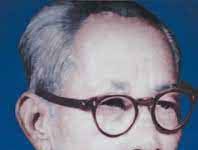Ibn Rushd | Brief Biography
Ibn Rushd | Brief Biography
Ibn Rushd, also known as Averroes, was a philosopher and physician from Cordoba, Spain, who lived from 1126 to 1198. He was born into a family of well-respected lawyers and judges and was raised in a cultured and scholarly environment. His father was a judge and his grandfather was the chief judge of Cordoba.
Ibn Rushd was a brilliant student and excelled in both medicine and law. He was particularly interested in philosophy and was an admirer of the works of Aristotle. He went on to become a physician and served as the court physician to the Caliph of Morocco. He was also appointed as a judge in Seville and later in Cordoba.
Despite his success in the field of medicine and law, it was his philosophical works that would bring him the greatest fame and influence. He was a pioneering figure in the field of philosophy, and his works were widely read and debated in the Islamic world. He was an advocate of Aristotelian philosophy and sought to reconcile Aristotelian thought with Islamic theology.
Ibn Rushd’s most famous work is his “Commentary on Aristotle’s Organon,” a series of commentaries on Aristotle’s works on logic. These commentaries were highly influential in the development of Western philosophy and were widely read by scholars in Europe during the medieval period. He also wrote several other works, including “The Decisive Treatise Determining the Nature of the Connection between Religion and Philosophy,” in which he argued for the compatibility of religion and philosophy.
One of the most important contributions of Ibn Rushd to the world of philosophy was his concept of the “double truth.” According to this concept, a statement can be true in philosophy and also true in religion, even if the two truths appear to be in conflict with each other. This idea was seen as heretical by many theologians, who believed that there could only be one truth and that it was the truth of religion.
Despite his contributions to the world of philosophy, Ibn Rushd’s works were banned in the Islamic world in the late 12th century. He was accused of heresy and was forced to flee Cordoba. He eventually returned to Morocco, where he continued to write and teach, but he never regained his former prominence.
Ibn Rushd‘s works were rediscovered in the West during the Renaissance, and he became known as Averroes. His works were highly influential in the development of European philosophy, particularly in the field of natural philosophy. His ideas on the compatibility of religion and philosophy, as well as his concept of the double truth, continue to be debated and discussed by philosophers and scholars to this day.
In conclusion, Ibn Rushd, also known as Averroes, was a philosopher, physician, and judge who lived in Spain during the 12th century. He was a pioneering figure in the field of philosophy and was known for his commentaries on Aristotle’s works, as well as his concept of the double truth. Despite being banned in the Islamic world, his works had a profound impact on the development of Western philosophy and continue to be studied and discussed to this day. 0 0 0.
Ibn Rushd Brief Biography
N. B. This article originally belongs to the book, ‘Brief Biographies of Ancient Thinkers and Writers‘ by Menonim Menonimus.
Books of Biography by M. Menonimus:
- The World Writers-Brief Biographies
- Introduction to World Writers
- Introduction to World Personalities
- Love of Reputed Persons ..
Additional Searches:











